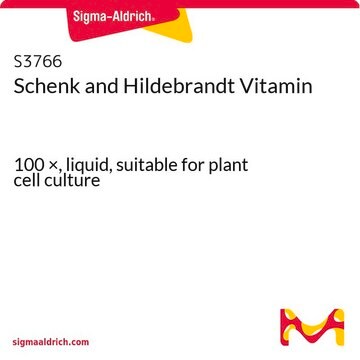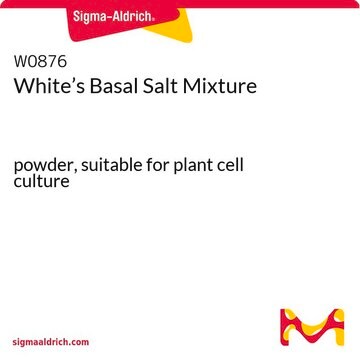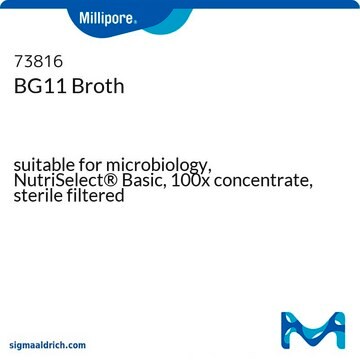S6765
Schenk and Hildebrandt Basal Salt Mixture
fine powder, suitable for plant cell culture
About This Item
Recommended Products
form
fine powder
Quality Level
technique(s)
cell culture | plant: suitable
application(s)
agriculture
storage temp.
2-8°C
Application
Formula variant
Signal Word
Warning
Hazard Statements
Precautionary Statements
Hazard Classifications
Ox. Sol. 3
Storage Class Code
5.1B - Oxidizing hazardous materials
WGK
WGK 1
Flash Point(F)
Not applicable
Flash Point(C)
Not applicable
Regulatory Listings
Regulatory Listings are mainly provided for chemical products. Only limited information can be provided here for non-chemical products. No entry means none of the components are listed. It is the user’s obligation to ensure the safe and legal use of the product.
ISHL Indicated Name
Substances Subject to be Indicated Names
ISHL Notified Names
Substances Subject to be Notified Names
JAN Code
S6765-2X5L:
S6765-10L-PW:
S6765-10L:
S6765-10L-LBL:
S6765-10X1L:
S6765-1L:
S6765-PROC:
S6765-1L-LBL:
S6765-VAR:
S6765-BULK:
S6765-1L-PW:
Choose from one of the most recent versions:
Certificates of Analysis (COA)
Don't see the Right Version?
If you require a particular version, you can look up a specific certificate by the Lot or Batch number.
Already Own This Product?
Find documentation for the products that you have recently purchased in the Document Library.
Customers Also Viewed
Articles
Classical plant tissue culture media developed years ago by pioneers such as Murashige, Skoog, Gamborg, and others still play a vital role in plant tissue culture research today.
Our team of scientists has experience in all areas of research including Life Science, Material Science, Chemical Synthesis, Chromatography, Analytical and many others.
Contact Technical Service









